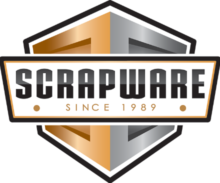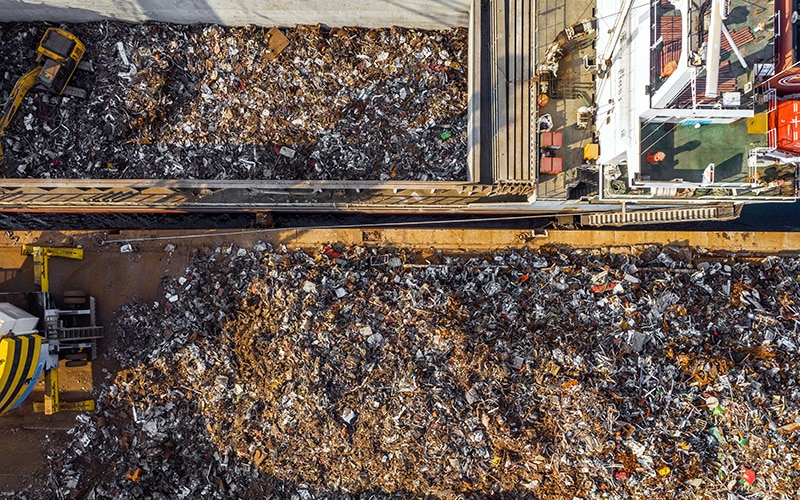Mining companies seeking to improve business—and their environmental scorecard—are taking up scrap metal recycling.
Earlier this year two large mining corporations partnered with recycling companies as they aim to meet demand for sustainable metals and green energy.
In May, the European mining company Glencore struck a deal with Li-Cycle Holdings, the Canada-based lithium-ion battery recycler. The partnership will develop a recycling hub in Europe to provide recycled material for the manufacture of lithium-ion batteries. According to the companies, when completed, the project would be Europe’s largest supplier of recycled battery-grade lithium, cobalt and nickel.
One of the world’s largest mining companies, Rio Tinto, last month announced it was buying a 50 percent stake in Matalco, a Canadian-owned supplier of recycled aluminum, for $700 million. Rio Tinto is a major aluminum producer, and its metal is used to manufacture electric vehicles, solar panels and wind turbines.
In an era when consumers and manufacturers are considering the environmental impact of products, the mining sector is seeking to turn around the perception that their industry is problematic and threatens the environment.
According to industry experts, this perception is dampening efforts to permit new projects and attract skilled workers.
Changing public perception is not the only benefit of branching out into scrap metal recycling. According to a Wall Street Journal report in August, mining companies also see an opportunity for increased profits. They are expecting a glut of scrap metal to become available from China after several decades of rapid industrialization in that country. The Journal report quotes industry consultants who point out that setting up an aluminum scrap processing plant costs about one-tenth of what is needed to build new a new plant to produce aluminum from mined ore. Given the move of governments around the world to enact ambitious recycling goals, some mining companies feel they need to move into recycling to stay competitive and relevant.
Despite the pressure to expand into recycling, moving in this direction is not as easy as it seems. Many large mining companies point out that it is a move away from their core business and requires different skills, investments and workers. Additionally, many manufacturers still need new metal from virgin ore to meet the more rigorous standards for aerospace, consumer electronics, defense, and other applications. Finally, recycling alone can’t meet the rise in demand for all the metal needed for a transition to renewable energy. According to the Journal report, industry analysts estimate that 42 percent of aluminum will come from scrap in 2050, while 26 percent came from scrap in 2022. Similarly, 39 percent of lithium will come from recycled sources in 2050 while 2 percent came from recycled lithium last year. These numbers demonstrate how much material will still need to be sourced from mines.
Benefits of metals recycling versus mining new ore
While mining will remain critical to meet the metal needs of a transition to renewable energy, there are many benefits to recycling scrap to help meet that demand when possible. Mining for new ore consumes a finite resource, whereas reusing scrap metal instead decreases the demand for virgin material. Mining damages the landscape, while recycling scrap metal keeps mountains of discarded metal out of landfills. Shaping and manufacturing metal sheets from ore requires significantly more energy compared to recycling scrap metal. For instance, it is said that using scrap aluminum can conserve more than 90 percent of the energy required to fabricate new aluminum sheets.
Most industry experts agree that mining and scrap metal recycling will both be essential components of meeting the growing metal demands of renewable energy. Some in the mining industry are already referring to the collection of scrap as: “urban mining.”
About ScrapWare Corporation: Since 1989, Rockville, Maryland-based ScrapWare Corporation has been the software of choice for the recycling industry. Its ease of installation and simplicity saves users time and money while helping them achieve compliance and maintain accurate business insights. With state-of-the-art functionality that‘s tailored to each organization’s unique requirements, ScrapWare is an advanced dynamic software solution that alleviates the most pressing recycling industry worries. For more information, please call (301) 517-8500 or visit https://www.scrapware.com/.

